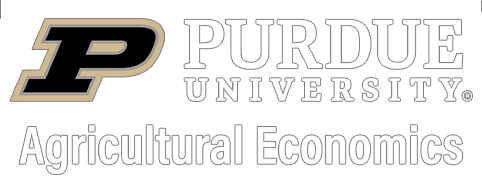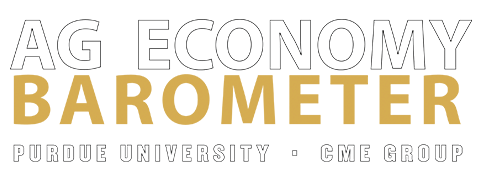June 5, 2019
Assessing Relationship Management and Leadership Skills
As farms continue to consolidate it becomes increasingly important to assess a farm’s management skills. At a certain farm size, it is no longer easy or feasible for the manager or managers to wear every management hat. How does the management team determine when to focus on professional development, delegate management tasks among mangers, and seek outside assistance? This is the sixth article in a series of articles pertaining the assessment of management skills. The topic of this article is the assessment of relationship management and leadership skills.
Relationship Management and Leadership Skills
Table 1 presents important relationship management and leadership skills. Important skills in these two management areas include the following: negotiating beneficial business arrangements with landowners, lenders, and suppliers; holding an annual meeting with stakeholders to address strategic planning issues; practicing active listening skills; seeking input from others when finding solutions to problems; and making sure that feedback focuses on problems and solutions, not on personal characteristics of the person receiving the feedback. Each farm operator should rank their ability with respect to each skill using a 1 to 5 scale with 1 be relatively weak and 5 being relatively strong with respect to that skill. The idea behind checklists such as that presented in table 1 is to assess whether a farm has a skills gap, which is defined as the difference between skills that a farm needs and the skills of their current workforce (operators and employees). Conducting a skills gap analysis helps a farm to identify skills that will be needed to become more efficient and expand.

The checklist in table 1 does not include a final tally score, nor does it address tradeoffs in various skill or ability areas that may lead to success. Rather, the checklist helps farm operators evaluate their skills and abilities in areas critical to long-term financial success. As farm operators fill out the checklist, they should try to determine which of the skills listed are most essential to improving efficiency and expansion plans.
The discussion below will focus on active listening skills, leadership, and relationship risk. Effective listening is an important component to effective communication. Everyone in a small business is a leader, so understanding roles and responsibilities is crucial to business success. As noted by Crane et al. (2013), an operation’s most valuable resources involve family and business relationships. Nurturing these relationships is yet another ingredient in business success.
Listening Skills
Effective listening is essential to good communication. There are two key points related to effective listening (Maloney and Milligan, 1996). First, it is important to allow an employee to finish talking before responding. Interjecting your thoughts before the employee is finished makes an employee think that their thoughts and opinions are not relevant. Second, it is important to listen carefully to what is being said. Often, a supervisor makes incorrect assumptions about what an employee is trying to say. For this reason, it is very important to listen carefully and make sure you understand what an employee is trying to communicate before responding.
Active listening is a communication tool that can be used to help others solve their own problems. Using active listening can help create an open communication climate which helps facilitate problem solving. Empowering employees to share their thoughts encourages an employee’s growth and development, and can lead to improvements in long-run productivity.
Leadership
Though each individual in a business has a different level of formal authority, every member of a small business could increase their job satisfaction and productivity by becoming a better leader. There are two major components related to leadership responsibilities (Maloney and Milligan, 1996). First, leaders establish the direction for your team or staff. Second, leaders enable every employee to participate in attaining the farm’s mission and vision.
The two dimensions of leadership involve supporting behavior and task behavior. The following leadership approaches involve these two dimensions. Coaching is high supporting and high task. Directing is low supporting and high task. Supporting is high supporting and low task. Finally, delegating is low supporting and low task. Many of these approaches involve personnel management skills which were described in more detail in a previous article (here).
Family and Business Relationships
Family members and employees are both a source of risk and an important component of strategies to deal with risk (Crane et al., 2013). One of the primary categories related to human risk is family and business relationships. Families and family businesses often have different goals and objectives. Table 2 contrasts the important components of families and family businesses. A careful examination of table 2 makes it obvious why there is often tension between the intersection of families and the businesses they operate.

Success is often defined differently for families and the businesses they operate. Table 3 illustrates the different attributes associated with successful families and family businesses. We do not want to give the impression that family businesses are fraught with so many disadvantages that they are likely to be short-lived. The advantages associated with family businesses often outweigh the disadvantages, particularly when family members are pulling in the same direction. We just want to make individuals aware of possible sources of tension between families and the businesses they operate.

Crane et al. (2013) discuss several strategies for managing family and business relationships. Strategies include the following: practicing open, honest, and effective communication; maintaining a balance in life; nurturing the human resources of each employee; respecting others feelings and opinions; allowing others to make decisions and enjoy the consequences; establishing family rules and policies to guide family members; utilizing conflict resolution processes; and seeking legal counsel regarding financial and tax implications when transitioning management and business assets.
Concluding Comments
Assessing relationship management and leadership skills is an important part of benchmarking farm performance and figuring out where improvements may be needed. If the operators on the farm identify management areas which are not currently being addressed, they will need to determine whether someone is going to get up to speed with regard to these areas or outside help is going to be sought to address weaknesses.
As farms continue to grow, relationship management and leadership skills will become increasingly important. Larger farms often have more linkages and alliances with agribusinesses, and need to have a solid leadership team to mitigate risk and uncertainty and to manage a growing pool of employees.
Citations
Crane, L., G. Gantz, S. Isaacs, D. Jose, and R. Sharp. “Introduction to Risk Management: Understanding Agricultural Risks.” Extension Risk Management Education and Risk Management Agency, 2013.
Langemeier, M. “Assessing Personnel Management Skills.” Center for Commercial Agriculture, Purdue University, April 2019.
Maloney, T.R. and R.A. Milligan. “Human Resource Management for Small Business Managers,” 1996.
TEAM LINKS:
PART OF A SERIES:
RELATED RESOURCES
UPCOMING EVENTS
We are taking a short break, but please plan to join us at one of our future programs that is a little farther in the future.




